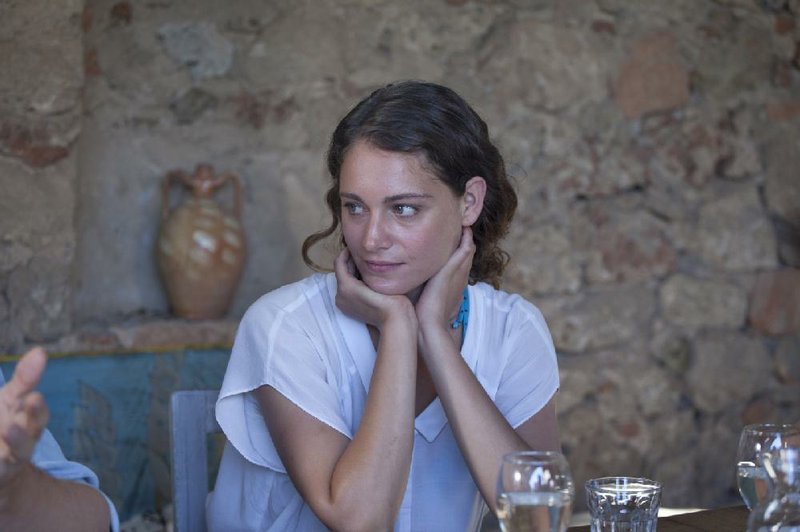While I think I have more patience than most with some of Richard Linklater’s more philosophically thumb-sucking films - I really like Waking Life, and there are days when I might list it as one of my Top 10 favorites - I have to admit that I have mixed feelings about his Before trilogy. I admire them for their verisimilitude and filmmaking virtuosity, the way Linklater lets his characters play out dialogues that sound a lot like the way real people talk in long takes, in what feels like a real-time environment. I love the way the movies are made, the integrity of the performances and the tacit acknowledgment of a world beyond the bubble in which our lovers find themselves. The movies feel honest.
That said, they don’t stick with me. I can barely remember the titles. I have to look them up each time, and in an unguarded moment I’m likely to refer to the second one - the one set in Paris - as After Midnight. (Apologies, J.J. Cale.) And most of what I remember about the second one - the one set in Paris - is that it isset in Paris, in a place I happen to know fairly well. When Ethan Hawke and Julie Delpy stroll the medieval streets of the Left Bank near the Place St. Michel, all I could think was, “Hey, I’ve been there!”
I mean that in a figurative as well as a literal sense since I’ve had the kind of conversations that Jesse (Hawke) and Celine (Delpy) have in these movies: Circular, convoluted and perhaps not as clever as those who are having them believe them to be at the time. I like seeing highly verbal people who enjoy a life of the mind on the screen, I like the way these people sort through the world. While Hawke can be a very annoying presence on the screen, with his co-conspirators Linklater and Delpy he seems to relax into an onscreen persona, the sort of preening, best-selling middlebrow author that Hawke - who has written two novels himself - may have become had he not become a movie star.
Anyway, the movie picks up nine years after we left Jesse and Celine in Paris - with Celine dancing to Nina Simone and Jesse resigned to missing his flight home to his family. What happened next was that they stayed together and had twins - adorable little bilingual blond girls - and, quite understandably, incurred the wrath of Jesse’s wife in Chicago. As this film opens, a noticeably haggard Jesse is at a laid-back Greek airport, preparing to put his 13-year-old son Henry (Seamus Davey-Fitzpatrick) on a plane back to the States after “the best summer of his life.”
Jesse is guilty about“abandoning” his son, and he expresses this sentiment to Celine during the drive back to the sun-splashed villa where they’ve been put up for the season by his publisher, one of the perks of being a literary writer whose books actually sell. It doesn’t take long before the passive-aggressive conversation cycles through petty old resentments and recriminations. Yes, this is a couple in love, but every choice forecloses other options. Jesse is disappointed that he has become a cranky, divorced forty something - Celine understands that he holds her responsible for the guilt that he feels and at the same time rebels against any further sublimation of her burgeoning (if vague) career.
The middle portion of the movie slows down as a few incidental characters are introduced in order to spout alternate theories about the way lovers relate and grow together (or apart), and for once the series seems to devolve into a kind of graduate seminar on sexual roles and tropes (in the screening we attended, several couples grew bored and walked out). It is an insufferable and unlikely group Linklater gathers around that table for an al fresco lunch.
But in the surprising third act, the film comes together as a plausible horror show of how good intentions and real affection can give way to vicious, realistic psychic combat. (More than 30 years ago, Elvis Costello coined the phrase “emotional fascism” just for this type of scene.) Some may find the last half hour difficult to watch as Jesse and Celine use the intimate confidences they’ve shared as weapons, and the hopefulness that informed the first two films curdles into acrimony. They know how to hurt each other - and they’re weary of being careful. That makes them dangerous, and it made me want to pull my lover close and whisper “not us - never us.”
I don’t think I’ll forget this one.
Before Midnight 88 Cast: Ethan Hawke, Julie Delpy, Seamus Davey-Fitzpatrick, Ariane Labed Director: Richard Linklater Rating: R for sexual content/nudity and language Running time: 109 minutes
MovieStyle, Pages 33 on 06/14/2013
